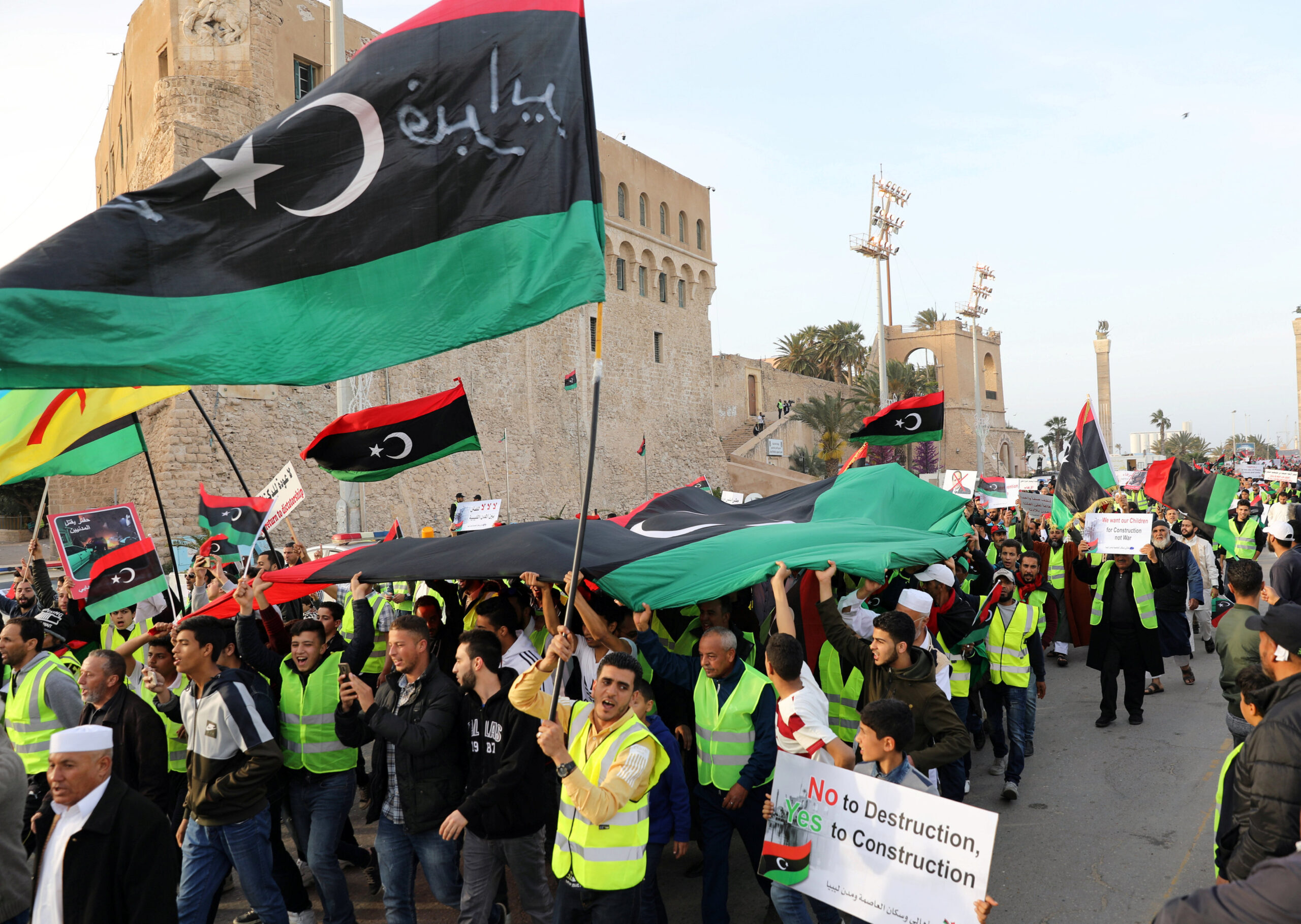
Anger in Tripoli as Trump praises Haftar

Thousands of protesters took to the streets in Libya’s capital, Tripoli, on Friday, against Libya’s Khalifa Haftar, the leader of a military assault on the capital Tripoli in opposition to the internationally recognized government.
Many also voiced their condemnation of US President Donald Trump, who called the commander and praised his “significant role in fighting terrorism and securing Libya’s oil resources.”
The White House said on Friday that President Donald Trump spoke by phone earlier in the week and discussed “ongoing counterterrorism efforts” with Haftar, whose Libyan National Army (LNA) launched a military campaign against Tripoli on April 4, saying it wanted to “cleanse” the country’s western region of “remaining terrorist groups”.
A White House statement said that in the phone call on Monday, Trump and Haftar “discussed a shared vision for Libya’s transition to a stable, democratic political system”.
It was unclear why the White House waited several days to announce the phone call. Europe and the Gulf have been divided over a push by Haftar’s forces to seize Tripoli.
Trump’s discussion with Haftar comes after the United Nations-recognised government in Tripoli said they planned to prosecute Haftar in the International Criminal Court (ICC), as over 205 people were announced deal by the World Health Organisation (WHO) in the ongoing battle for the capital.
More than 25,000 people have been displaced by the clashes, including 4,500 over the past 24 hours, the International Organization for Migration said on Wednesday.
United Nations Secretary-General, António Guterres, has called for an end to the fighting, urging a return to a “serious political process.”
After briefing the Security Council, I reiterated my strong appeal for the fighting in Libya to stop immediately. There is no military solution. I believe there is an urgent need to return to a serious political process. https://t.co/jy9HANLKTS pic.twitter.com/swJwEsdObM
— António Guterres (@antonioguterres) April 10, 2019
Libya has experienced a political crisis since the 2011 ouster and killing of former leader Muammar Gaddafi.
The chaos enabled the breeding of various militant groups, including human trafficking rings that made the North African country a preferred departure point for migrants seeking to reach Europe.
Following the latest eruption of violence in the country, U.N. humanitarian agency OCHA last week warned of “disproportionate and indiscriminate use” of explosive weapons in densely populated areas.






